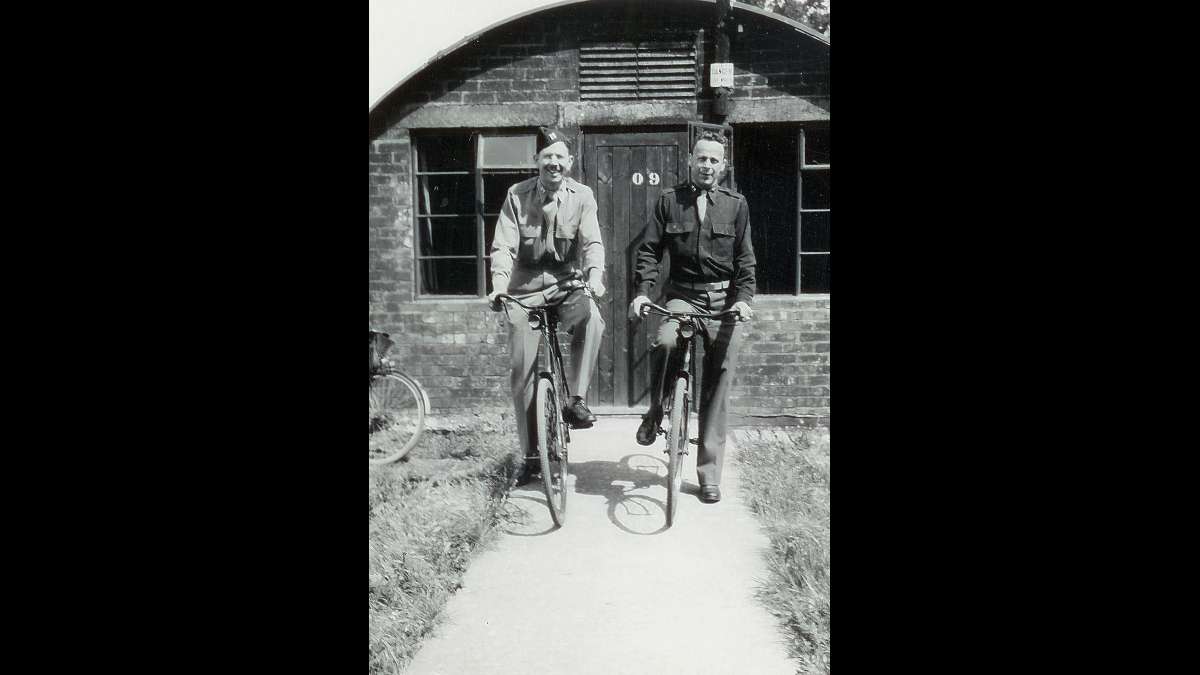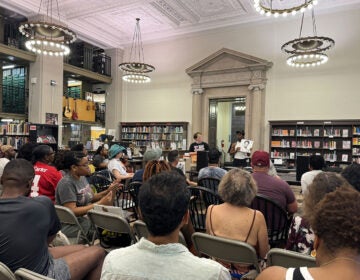Cooking up a new approach to teaching at Philly Free Library
The fourth floor of the Main Branch of the Free Library of Philadelphia has a gorgeous roof terrace overlooking Logan Square with an intimate view of the city skyline to the south. Few visitors saw — or cared to see — what was down the hallway to the left.
“Years ago — decades, perhaps? — there was a cafeteria that was open to staff. It may have been before I was born,” said Elizabeth Fitzgerald, the new Culinary Literacy Center specialist.
“There was what I lovingly refer to as the pirate kitchen,” said Fitzgerald, because the refrigerator had wooden door like you’d find on a pirate ship.
After a $1 million renovation — part of a $5 million overhaul of the entire fourth floor — the Free Library has opened a state-of-the-art demonstration kitchen with four refrigerators, four ovens, two cheese melters, a grill, 16 gas burners, and another four burners in a demonstration table.
The kitchen is the centerpiece of the new Culinary Literacy Center. It includes books about food — many donated by the late cooking “grande dame” Julia Dannenbaum — and lots of programming to teach nutrition, cooking, gardening, and vocation skills.
“This city has very significant low-literacy skill sets,” said Siobhan Reardon, library president. “A half-million people over the age of 18 can’t read at a sufficient level. Traditional literacy methods aren’t working, so let’s try something else.”
Reardon said cooking involves not just reading but math, science, and tactile learning wherein students can eat their progress.
The Culinary Literacy Center has partnered with local chefs and institutions to provide focused instruction. Celebrated chef Marc Vetri will develop food programs for the Philadelphia School District; Drexel University will teach cooking to the elderly; Career through Culinary Arts Program (C-CAP) will mentor teenagers into the cooking vocation; and celebrity chef Jose Garces will use the library kitchen to continue teaching restaurant skills to people for whom English is a second language.
“Whether it’s where food comes from, how it’s grown, how to prepare healthy meals … That’s a big charge I’ve taken, that Chef Vetri has taken on, in the community,” said Garces, who had been teaching in a small space in South Philadelphia. “It’s a natural extension of what we do, and to have it in the heart of Philly is really nice.”
WHYY is your source for fact-based, in-depth journalism and information. As a nonprofit organization, we rely on financial support from readers like you. Please give today.
















